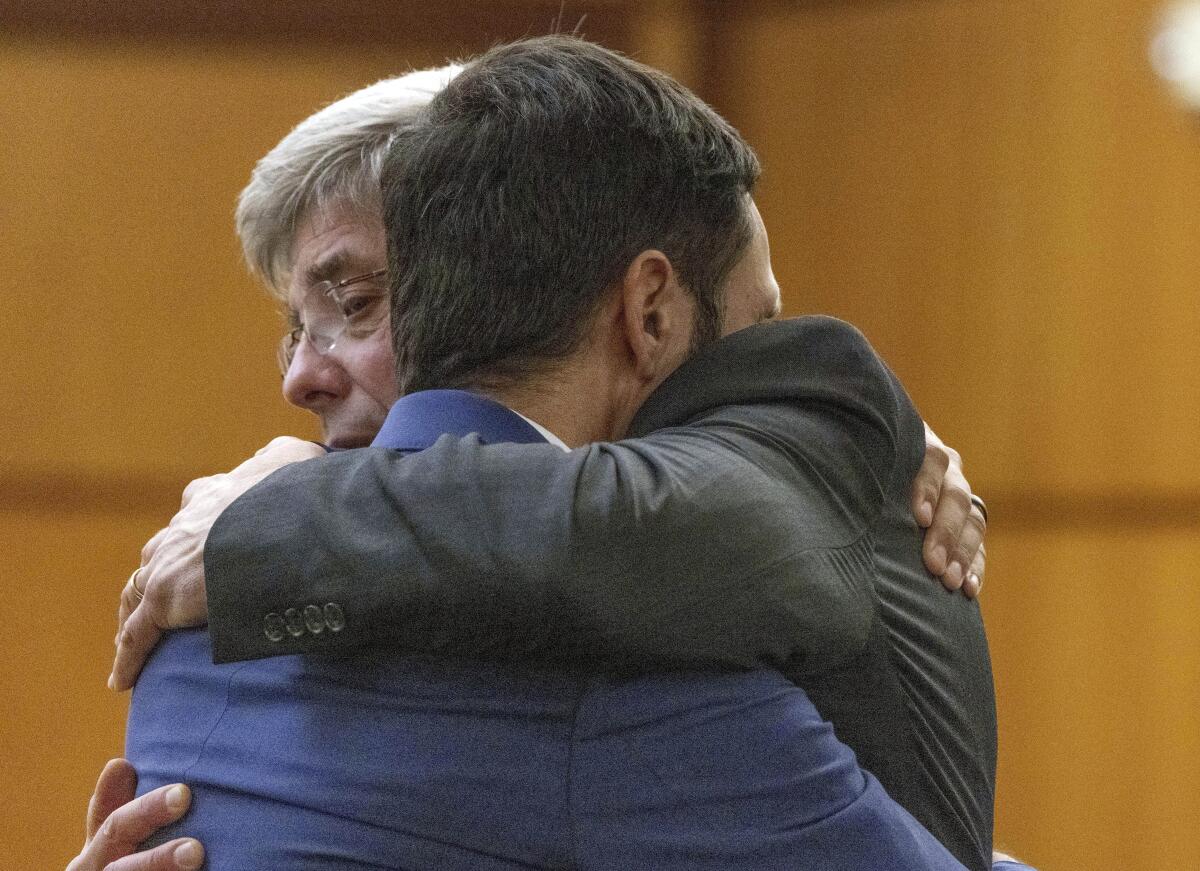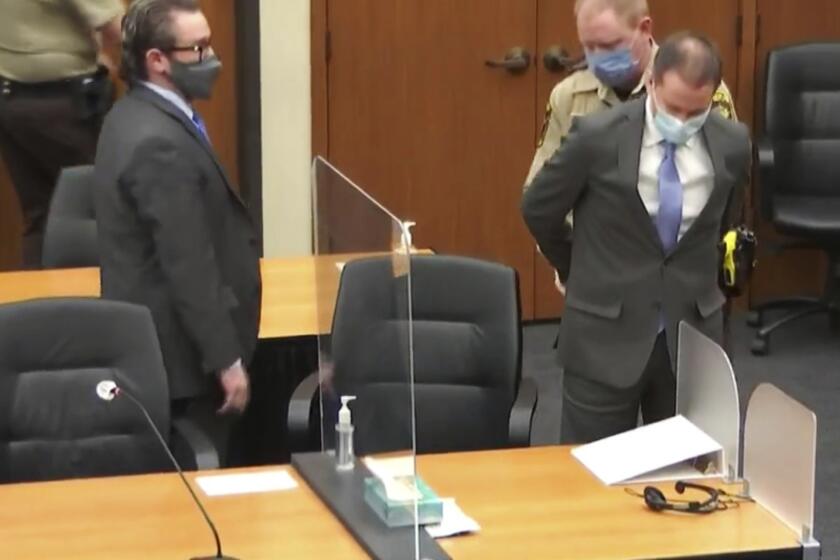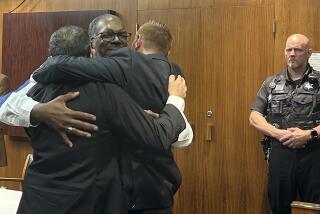Jury acquits 3 Washington state officers in death of a Black man who told them he couldn’t breathe

TACOMA, Wash. — A jury cleared three Washington state police officers of all criminal charges Thursday in the 2020 death of Manuel Ellis, a Black man who was shocked, beaten and restrained facedown on a Tacoma sidewalk as he pleaded for breath.
Two of the officers — Matthew Collins, 40, and Christopher Burbank, 38 — had been charged with second-degree murder and manslaughter, while Timothy Rankine, 34, was charged with manslaughter. The jury found the three not guilty on all counts.
There was a gasp from the gallery when the first not-guilty verdict was read. Rankine sat forward in his seat and wiped his eyes, while Collins hugged his lawyer.
Matthew Ericksen, a lawyer representing the Ellis family, said it was hard to convey how devastating the verdict was for the family and community.
“The biggest reason why I personally think this jury found reasonable doubt is because the defense was essentially allowed to put Manny Ellis on trial,” Ericksen said via email. “The defense attorneys were allowed to dredge up Manny’s past and repeat to the jury again and again Manny’s prior arrests in 2015 and 2019. That unfairly prejudiced jurors against Manny.”
The jury in the trial of Derek Chauvin convicted the former Minneapolis police officer of murder in the death of George Floyd.
As the sun went down, about 30 people including family members of Ellis gathered near the Manuel Ellis mural in Tacoma, closing an intersection. “No justice, no peace,” they chanted.
Washington Atty. Gen. Bob Ferguson, whose office prosecuted the case, said in a statement that he was grateful for the jury, the court and his legal team “for their extraordinary hard work and dedication.”
“I know the Ellis family is hurting, and my heart goes out to them,” he said.
The Washington Coalition for Police Accountability said in a statement that “the not guilty verdict is further proof the system is broken, failing the very people it should be serving.”
Roger Rogoff, director of the state’s recently created Office of Independent Investigations, which is tasked with investigating police shootings, said he did not want to comment directly on the verdict but expressed sympathy for the Ellis family.
“I continue to have empathy and sympathy for the family of Manny Ellis,” Rogoff said. “Anybody who loses a child in that way, it’s tragic, and they’re living with that forever. My heart and our office’s heart goes out to them. I also am aware that the law enforcement officers involved are also impacted significantly, and so I am glad that the trial is over for all people involved.”
The Pierce County medical examiner ruled Ellis’ death a homicide caused by oxygen deprivation, but lawyers for the officers said a high level of methamphetamine in Ellis’ system and a heart irregularity were to blame.
Witnesses — one of whom yelled for the officers to stop attacking Ellis — and a doorbell surveillance camera captured video of parts of the encounter the night of March 3, 2020. The video showed Ellis with his hands up in a surrender position as Burbank shot a Taser at his chest and Collins wrapped an arm around his neck from behind.
The officers later told investigators that Ellis attacked them and was violent. Witnesses testified that they saw no such thing.
“When I saw Manuel not doing anything, and him get attacked like that, it wasn’t right,” witness Sara McDowell, 26, said at trial. “I’d never seen police do anything like that. It was the worst thing I’ve ever seen. It was scary. It wasn’t OK.”
Collins testified that he lamented Ellis’ death but wouldn’t have done anything differently. He said he never heard Ellis say, repeatedly, that he couldn’t breathe, and he maintained that Ellis started the confrontation by lifting Collins off the ground and throwing him onto his back, something no other witness reported seeing.
Another officer, Rankine, called Ellis’ death a tragedy. He was pressing his knees into Ellis’ back when Ellis pleaded for breath.
“The only response at that point that I could think of is, ‘If you can talk to me, you can still breathe,’” Rankine said in testimony.
Ellis’ death became a touchstone for racial justice demonstrators in the Pacific Northwest, but it also coincided with the first U.S. outbreak of COVID-19 at a nursing home in nearby Kirkland and did not garner the attention that the police killing of George Floyd in Minneapolis did nearly three months later.
The trial, which lasted more than two months, was the first under a 5-year-old state law designed to make it easier to prosecute police accused of wrongfully using deadly force.
Ellis was walking home with doughnuts from a 7-Eleven when he passed a patrol car stopped at a red light, with Collins and Burbank inside.
After what witnesses said appeared to be a brief conversation between Ellis and the officers, Burbank, in the passenger seat, threw open his door, knocking Ellis down. The officers, both white, tackled and punched Ellis, with one stunning him with a Taser as the other held him in a neck restraint.
Among the many other officers who responded was Rankine, who arrived after Ellis was already handcuffed facedown and knelt on the man’s upper back as he pleaded for breath.
Video captured Ellis addressing the officers as “sir” while telling them he couldn’t breathe. One officer is heard responding, “Shut the [expletive] up, man.”
More to Read
Sign up for Essential California
The most important California stories and recommendations in your inbox every morning.
You may occasionally receive promotional content from the Los Angeles Times.











